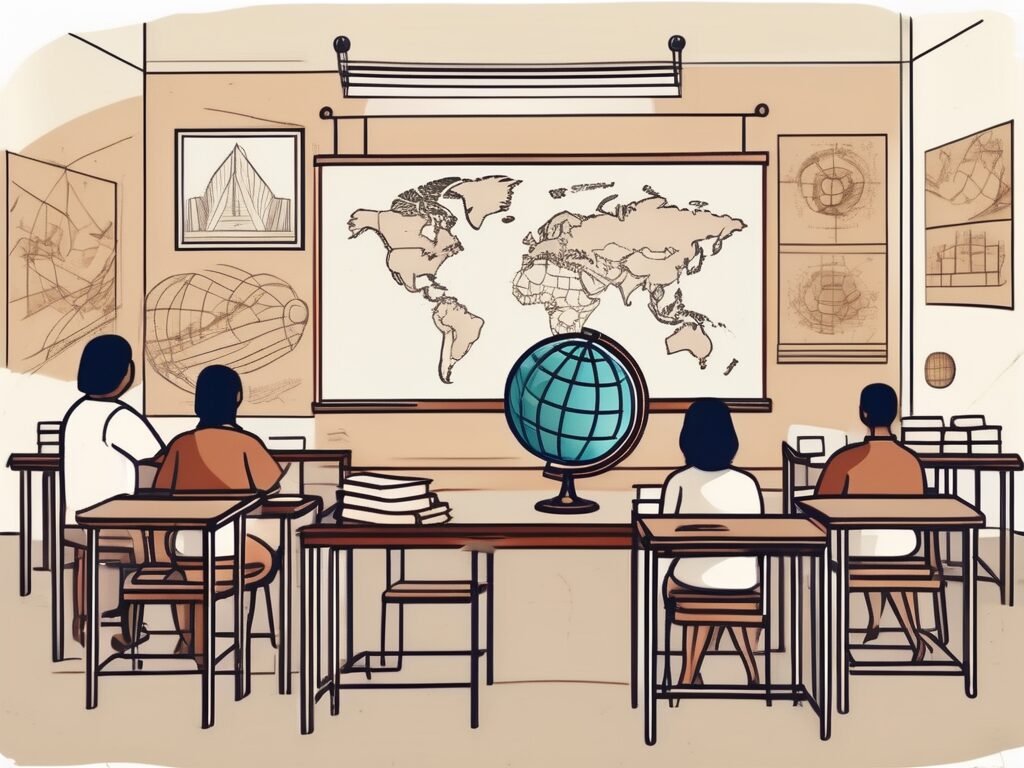Top 5 Challenges for International Teachers in Indonesia by 2025
Indonesia, an expansive archipelago comprising over 17,000 islands, is characterized by its rich tapestry of cultures, languages, and traditions. This diversity presents a compelling opportunity for international educators seeking to broaden their horizons. However, the journey of teaching in Indonesia is fraught with challenges that require careful navigation. This guide aims to elucidate the primary obstacles faced by international teachers and provide strategic insights for overcoming them.
1. Language Proficiency and Communication Barriers
A predominant challenge for international educators in Indonesia is the language barrier. Although English is part of the curriculum in many schools, it is not the primary language for the majority of the population. This discrepancy can complicate communication with students, parents, and colleagues.
Moreover, the Indonesian language encompasses various regional dialects and colloquialisms, which can pose additional difficulties for non-native speakers. Misunderstandings may arise, impacting the educational experience.
Strategies for Effective Communication
- Enroll in Bahasa Indonesia language courses to enhance communication skills and demonstrate respect for local culture.
- Utilize visual aids and interactive teaching methodologies to facilitate understanding and engagement in the classroom.
2. Cultural Sensitivity and Adaptation
Indonesia’s rich cultural heritage can be both a source of inspiration and a challenge for international educators. Understanding and respecting local customs is essential for fostering positive relationships with students and their families.
For instance, the cultural concept of ‘saving face’ is significant in Indonesia, where direct criticism may be perceived as disrespectful. This cultural nuance can be challenging for educators accustomed to more direct communication styles.
Embracing Cultural Nuances
- Invest time in learning about local customs, traditions, and social etiquette to enhance cultural competence.
- Engage in community events and festivals to build rapport and immerse oneself in the local culture.
3. Navigating the Educational Framework
Indonesia’s educational system presents unique challenges that may differ significantly from those in other countries. International educators may encounter a reliance on rote learning, contrasting with the interactive, student-centered approaches they are accustomed to.
Additionally, the emphasis on high-stakes testing can create stress for both students and educators, necessitating a thoughtful approach to teaching methodologies.
Adapting to Local Educational Practices
- Familiarize yourself with the Indonesian educational system to effectively integrate your teaching style while respecting local practices.
- Collaborate with local educators to gain insights and strategies for navigating the system successfully.
4. Resource Limitations
International educators in Indonesia may face challenges related to limited resources, including insufficient teaching materials and technology access. This situation can be particularly difficult for those accustomed to well-resourced educational environments.
Innovative Resource Utilization
- Leverage local materials to create teaching aids and enhance lesson engagement.
- Utilize available technology creatively, such as employing a single computer for group projects or research activities.
5. Academic Standards and Institutional Accreditation
When selecting schools in Indonesia, it is imperative for international educators to consider the academic standards, teaching philosophies, facilities, and global accreditation of the institutions. These factors significantly influence the quality of education and the overall teaching experience.
Evaluating Educational Institutions
- Research the school’s accreditation status to ensure alignment with international educational standards.
- Assess the school’s facilities, including libraries, laboratories, and technology access, to gauge the support available for teaching and learning.
Conclusion
Teaching in Indonesia offers a wealth of opportunities for personal and professional growth. However, international educators must be prepared to confront various challenges, including language barriers, cultural differences, educational system adaptations, resource limitations, and institutional standards. By approaching these challenges with an open mind and a strategic plan, educators can not only enhance their teaching effectiveness but also enrich their own understanding of Indonesia’s vibrant culture.
Enhance Your Teaching Career with IPGCE
Are you ready to transform the challenges of international teaching into opportunities for professional growth? Join IPGCE, the UK’s leading Teacher Training Course, and acquire the qualifications and skills necessary to excel in diverse educational environments like Indonesia. Our International Postgraduate Certificate in Education (iPGCE) is designed for educators aiming to elevate their credentials, connect with a global professional network, and unlock new career pathways. With a proven track record of enhancing interview success, promotion rates, and salary potential, the iPGCE is your gateway to a fulfilling international teaching career. Embrace the journey of professional development and Join the UK’s #1 Teacher Training Course today.

